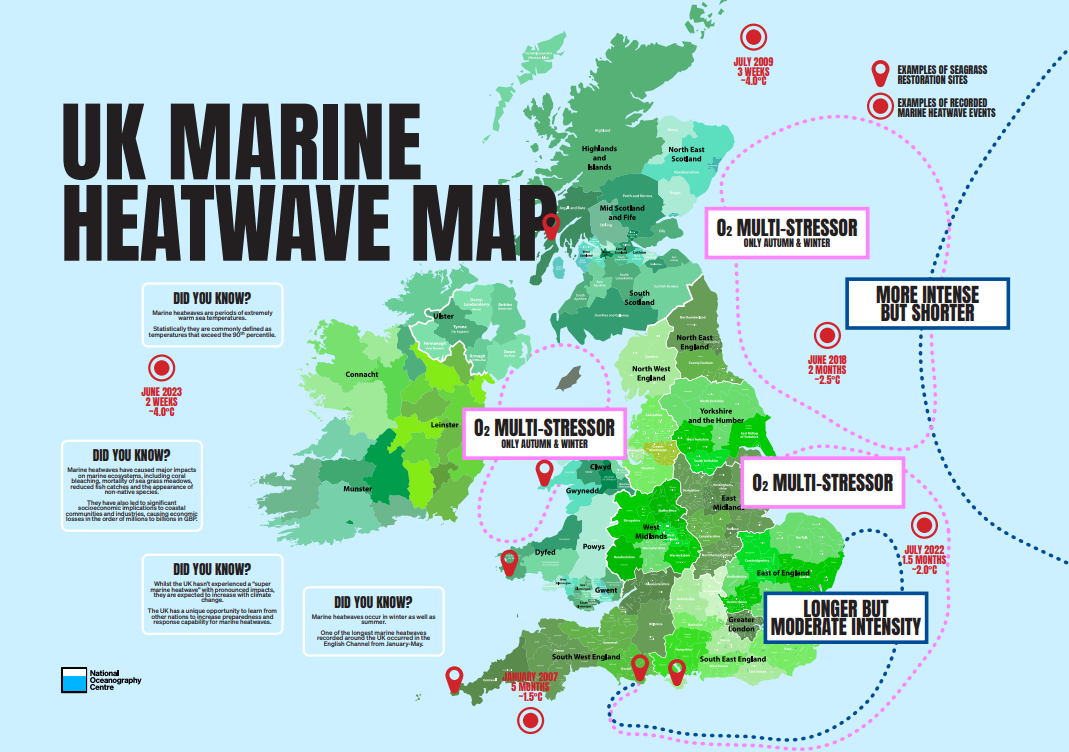
A new study by the National Oceanography Centre (NOC) in Southampton has revealed where marine heatwave events are most likely to occur in UK waters, for the first time.
With climate change continuing to raise global temperatures, study authors are calling for more targeted research to improve UK resilience to marine heatwaves. These events can have devastating impacts on marine ecosystems and knock-on effects that can cause economic losses in the order of millions to billions of pounds.
The study, led by NOC’s Dr Zoe Jacobs, and published in Frontiers in Marine Science, shows there are regional marine heatwave hotspots in the Southern North Sea and English Channel (see map below). Events here are weaker than in other areas around the UK, but last longer.
Using computer models, the study also reveals that these regions may also be susceptible to low oxygen compound events near the seafloor, highlighting the threat to benthic ecosystems. It also uncovers regions that have marine habitats that are more sensitive to marine heatwave events.

The research was sparked by the occurrence of an intense marine heatwave in UK waters in June 2023. While lasting just two weeks, the event was unprecedented in its intensity, causing the ocean to be 5°C warmer than average at this time of year.
Globally, marine heatwaves can negatively impact complex marine ecosystems by causing coral bleaching, harmful algal blooms, kelp and seagrass dieback, disease in invertebrates, location shifts in fish species, mass mortality of fish, seabirds and marine mammals.
Dr Zoe Jacobs, Biogeochemical Modeller at NOC, and lead author of the study said: “Until now, we didn’t know what marine heatwaves looked like around the UK, how long they last and where they are likely to occur.
“While we don’t often experience severe marine heatwave events in the UK at the moment, they are projected to increase, with climate change causing them to become more frequent, intense, and longer lasting globally.
“It’s vital that we have targeted marine heatwave research in this area and that we learn from other countries who are experiencing them now to ensure the UK can be resilient to them in the future.”
Read the full study.